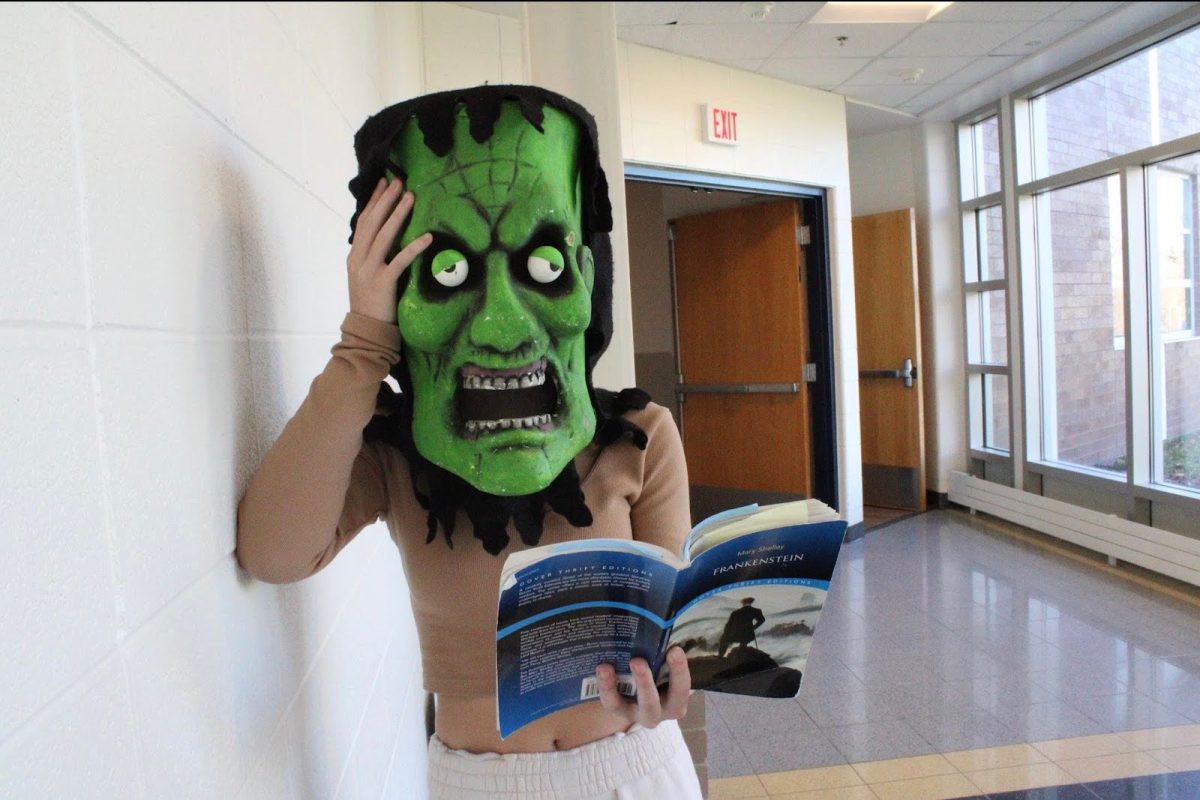Mary Shelley’s Frankenstein is considered a classic by most people, but the novel’s complex themes, advanced vocabulary, and Modern English writing can make it challenging for 9th graders reading it to fully grasp the concepts of the book.
The themes in Frankenstein are deep and difficult to dissect. The book’s themes I’ve found most commonly mentioned are the consequences of playing God and the ethical boundaries of science experiments. These are complex themes that need a higher level of maturity and critical thinking to be able to fully understand all the concepts. Not only are these themes complex for 9th graders just starting high school, but these themes can be very difficult to relate to their own experiences considering most students this age are still learning what their views on science and responsibility are.
The vocabulary used in Frankenstein is very sophisticated and sometimes outdated. For 9th graders who often use modern slang to communicate, the vocabulary that is used in Frankenstein might as well be another language compared to the way high schoolers talk nowadays. Shelley wrote the book over 200 years ago in 1818, and the writing style reflects the time. 9th-grade students who were just reading “The Outsiders” written in the late 1960s the previous year, the book Frankenstein is a huge step up with its outdated language, vocabulary, and dense descriptions. This book is a huge challenge for most 9th graders who are expected to read it. Most words and phrases that were used often in Shelley’s time are often confusing and unfamiliar to today’s students, which can lead to confusion and frustration.
Some will argue Frankenstein’s complexity is beneficial for developing students’ literary skills, but for most 9th graders, this challenge might not enhance their literary understanding. Some studies have shown that when books/texts are too advanced students are more likely to disengage, making them frustrated rather than grow their literary understanding. Boston University researched reading comprehension, they found that most students learn best when they can connect new information to what they already know. This can be difficult to do with the book Frankenstein due to its outdated language and sophisticated themes. This can cause students to miss the big themes or feel like they can’t relate to the text, worsening their literary understanding instead of helping it.
The structure of the writing in Frankenstein is old-fashioned and outdated and can be difficult to follow and keep up with. Parts of the story are told in a series of letters and through framed narratives, since the book shifts between the perspectives of Victor, the Creature, and others, this can make it difficult for 9th graders to keep on track of what’s going on in the story and who’s telling it. It can make it hard to identify the plot and the relationships between characters. While students are preoccupied trying to understand who speaking, where they are, and when things are taking place, it can often take away from the comprehension of the actual story itself causing students’ quality of work to decrease due to lack of comprehension.
While Frankenstein is a classic novel and important to read, 9th grade isn’t the time to expect that amount of complex reading. The intricate themes, advanced vocabulary, and old-fashioned writing style can be too complex for 9th graders. Overall the book Frankenstein is much too advanced for 9th graders and very difficult to relate to. The reading expectations shouldn’t be so high for developing readers. Overall, it suggests that Frankenstein might be better suited for older students.








